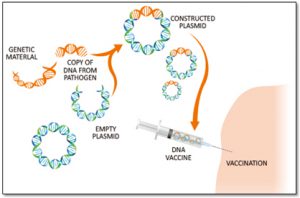The Inovio Pharmaceuticals recently announced that a second patient with human papillomavirus (HPV) head and neck cancer has achieved sustained complete remission in the first phase of the trial after INO-3112 (now known as MEDI0457) plus subsequent treatment with PD-1 checkpoint inhibitors. This indicates that the second patient with metastatic cancer was completely relieved after being treated with a synthetic DNA vaccine and treated with a PD-1 checkpoint inhibitor.

Introduction to the research report
Dr. J. Joseph Kim, President and Chief Executive Officer of Inovio, said: “sustained complete remission through immunotherapy in patients with metastatic cancer is the desired outcome of the new cancer therapy. Our synthetic DNA vaccine, combined with two different PD-1 inhibitors, was used to treat HPV cancer patients, and the results showed that two of the four progressives achieved complete remission, which is very encouraging. The optimal complete remission rate of PD-1 inhibitor as a single drug for metastatic head and neck tumors was about 4%. While more data from phase II clinical studies will provide more insight into the power of synthetic DNA vaccines, the newly reported data using T cell activators plus checkpoint inhibitors provides more validation for Inovio’s overall cancer portfolio strategy. In addition to our collaboration on HPV-related cancers, Inovio is also working with F. Hoffman-La Roche Ltd./Genentech and Regeneron on efficacy trials to link Inovio’s INO-5401 to their checkpoint inhibitors. So as to improve the remission rate of metastatic bladder and GBM, respectively. Interim efficacy data are expected to be available later this year. “
As part of a single-drug trial of 22 patients with HPV-associated head and neck squamous cell carcinoma, both patients with complete remission were treated with four doses of synthetic DNA vaccine. Among them, 91% (20/22) of the patients showed T cell activity in blood or tissue. These results suggest that the synthetic DNA vaccine produces a strong HPV16/18-specific CD8+ T cell response in peripheral blood and increases the infiltration of CD8+ T cells in resected tumor tissue specimens.
Of the four patients with progressive disease who subsequently took PD-1 checkpoint inhibitors, two showed rapid complete remission. The most recent patient who provided data yesterday received Keytruda, while previously reported complete remission received Opdivo treatment. The patient metastasized from metastatic head and neck cancer to no signs of disease and survived 2 years after treatment. Detailed results of the first head and neck cancer patient treated with Opdivo were published in the October issue of the Journal of Clinical Cancer Research.
The results were presented by David B. Weiner, Executive Vice President of The Wistar Institute, Director of the Vaccine and Immunotherapy Center and Professor of Cancer Research at the W.W. Smith Charitable Trust, at Keystone Symposia Conference/Cancer Vaccines in Vancouver, Canada, on January 23.
About HPV’s head and neck cancer
Human papillomavirus (HPV) is the most common sexually transmitted disease in the United States, and about 79 million Americans are currently infected with HPV. HPV plays an important role in the occurrence and development of head and neck cancer, including oral cancer, oropharynx cancer, nasal/nasal tract cancer, and laryngeal carcinoma. It is estimated that 53000 people in the United States will suffer from oral or oropharyngeal cancer in 2019. New head and neck cancer cases occur almost three times as often in men as in women. The incidence of head and neck cancer has been on the rise, especially in men associated with HPV, and is expected to continue to grow.
